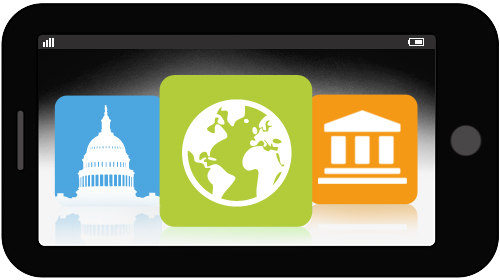
Today and tomorrow the United Nations Human Rights Committee will review the United StatesÔÇÖ compliance with the International Covenant on Civil and Political Rights. To assist in the review of U.S. compliance with the covenantÔÇÖs privacy protections, the └¤░─├┼┐¬Ż▒Żß╣ű today released a report, ÔÇťPrivacy in the Digital Age,ÔÇŁ which interprets how Article 17 of the International Covenant on Civil and Political Rights should protect privacy in an age where technology enables mass surveillance. Article 17 protects everyone from arbitrary or unlawful interferences with their ÔÇťprivacy, family, home or correspondenceÔÇŁ from state intrusion. The └¤░─├┼┐¬Ż▒Żß╣ű urges the Human Rights Committee to issue a new interpretation of Article 17 that fully protects the privacy of everyone from governments everywhere.
This piece originally ran at .
Since the summer, Americans have learned that the National Security Agency has routinely violated their right to privacy for more than a decade. The world, however, learned they had no such right, whatsoeverÔÇöat least in so far as the U.S. is concernedÔÇöas more and more of the NSAÔÇÖs worldwide surveillance apparatus was revealed. Months later, the global uproar over NSA surveillance, fueled by stories of the NSA tapping German Chancellor Angela MerkelÔÇÖs personal cell phone, led President Barack Obama to concede that everyone should be afforded some level of privacy from U.S. spying.
ÔÇť[U.S.] intelligence activities must take into account that all persons should be treated with dignity and respect, regardless of their nationality or wherever they might reside,ÔÇŁ the president said in January, ÔÇťand that all persons have legitimate privacy interests in the handling of their personal information.ÔÇŁ
President ObamaÔÇÖs recognition of privacy as a human right, however deficient, isnÔÇÖt new. ItÔÇÖs actually the law. In 1992, the U.S. ratified the United NationsÔÇÖ International Covenant on Civil and Political Rights, a human rights treaty that guarantees privacy rights. More specifically, Article 17 protects everyone from arbitrary or unlawful interferences with their ÔÇťprivacy, family, home or correspondence.ÔÇŁ
What these protections mean today in our digital age of mass surveillance by the NSA and other intelligence agencies has been one of the many issues considered in Geneva this week, as the U.N. Human Rights Committee ÔÇôa group of independent human rights experts tasked with overseeing compliance with the International Covenant on Civil and Political RightsÔÇöreviews the U.S.ÔÇÖs human rights record, both at home and overseas. Indeed, the right to privacy, according to the U.N. High Commissioner for Human Rights, is one of the most pressing issues facing the committee during its 110th session.
To continue reading ÔÇťPrivacy Rights are Human Rights,ÔÇŁ click .
Learn more about government surveillance and other civil liberty issues: Sign up for breaking news alerts, , and .

